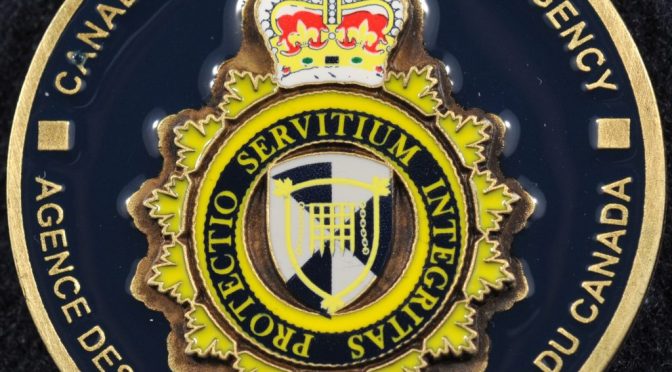Digital devices
Canada Border Services Agency (CBSA) officers are allowed to examine all goods you have with you when you cross the border. This means that just like your luggage, our officers can examine your cell phones, tablets, laptops and any other digital device you are carrying.
A digital device is defined as any device that is capable of storing digital data, such as:
- cell phones
- smartphones
- computers
- tablets
- removable media
- drives
- cameras
- smartwatches
- any other device capable of storing digital data
Why CBSA examines digital devices?
The CBSA has always had a policy on examination of goods. To provide greater certainty, the Agency now has a dedicated policy on examination of digital devices at ports of entry.
CBSA officers do not always examine digital devices. Our policy is to examine a device only if we think we will find evidence on it that border laws have been broken.
Reasons an officer might examine your digital device(s) include concerns regarding your:
- admissibility or admissibility of your goods
- identity
- failure to comply with Canadian laws or regulations
What to expect if CBSA examines your digital device
A CBSA officer will start with some questions before examining your digital device. To examine the digital device, the officer will first ask for the password which will be written down on a piece of paper. You are obligated to provide your password when asked.
Failure to grant access to your digital device may result in the detention of that device under section 101 of the Customs Act, or seizure of the device under subsection 140 (1) of the Immigration and Refugee Protection Act.
The officer should turn your device on airplane mode to disable its ability to send and receive information. This ensures they can only access information stored on the device.
They will not have access to:
- social media
- banking websites
- emails not stored on the device
The officer will usually examine your device in your presence, unless there are operational considerations that make it inappropriate to do so.
Solicitor-client privileged information
The CBSA is committed to respecting privacy rights while protecting the safety and security of the Canadian border. If a BSO encounters content marked as solicitor-client privilege, the officer must cease inspecting that document. If there are concerns about the legitimacy of solicitor-client privilege, the device can be set aside for a court to make a determination of the contents.
Examining a digital device: What happens next
If no evidence of an infraction (that is, proof that you may be contravening a law) is found, the officer will return your digital device to you, along with your password. You will then be on your way.
If evidence of an infraction is found, the officer may seize your device. If the officer seizes or detains your device, they will explain the process and next steps to you, including your right to contest the seizure.
If the CBSA cannot absolutely determine that the device’s content is admissible at the port of entry, we may detain the device for further examination.
This may take up to 30 calendar days from the date of detention. Once completed, we will return your device, provided we do not find evidence of an infraction. If we do find evidence, we may seize your device.
The CBSA will contact you to arrange the return of your digital device.
The CBSA may seize your device if we determine its contents contain evidence of a contravention of Canadian laws. For example, if the device contains evidence of a crime, contraband or other prohibited or restricted goods, we may seize it.
If this happens, we will notify you about the seizure. We will then explain your options to contest it through the CBSA Recourse Office.
Contesting a seizure
If you wish to file an objection to a CBSA enforcement action, you must file a request for review within 90 days after the date of the enforcement action was taken. Requests for review may be submitted online at: https://www.cbsa-asfc.gc.ca/recourse-recours/menu-eng.html.
Safeguarding Canadians
Whether visiting or returning to Canada, you may be subject to an examination by a CBSA officer to determine your admissibility. This includes any goods or vehicle you bring across the border.
Our officers perform regular examinations to ensure compliance with Canadian laws and regulations, including customs, immigration, and food, plants and animal legislation. If you are subject to an examination, you can expect to be treated in a courteous, dignified, and professional manner.
An examination can be as simple as a few questions to verify your declaration or determine your admissibility to Canada, but it can also include:
- more in-depth questions
- paperwork processing
- examination of your vehicle and your goods
- personal searches
Please Contact Us for more information.

